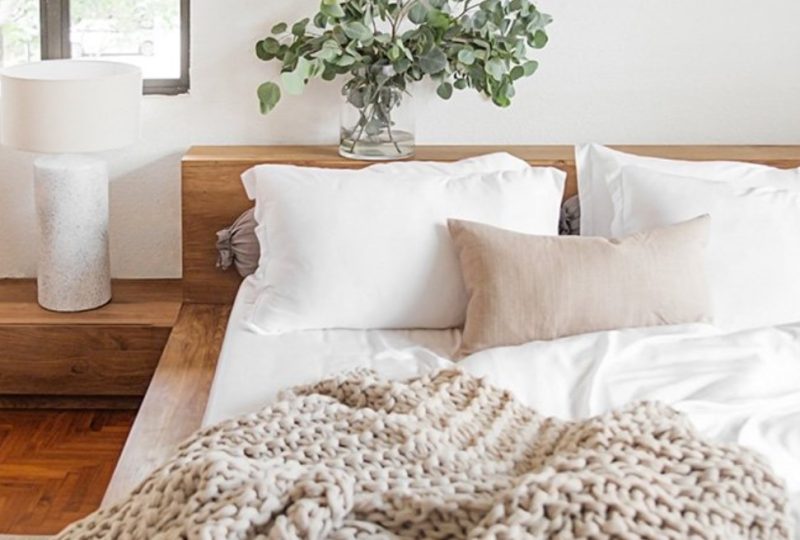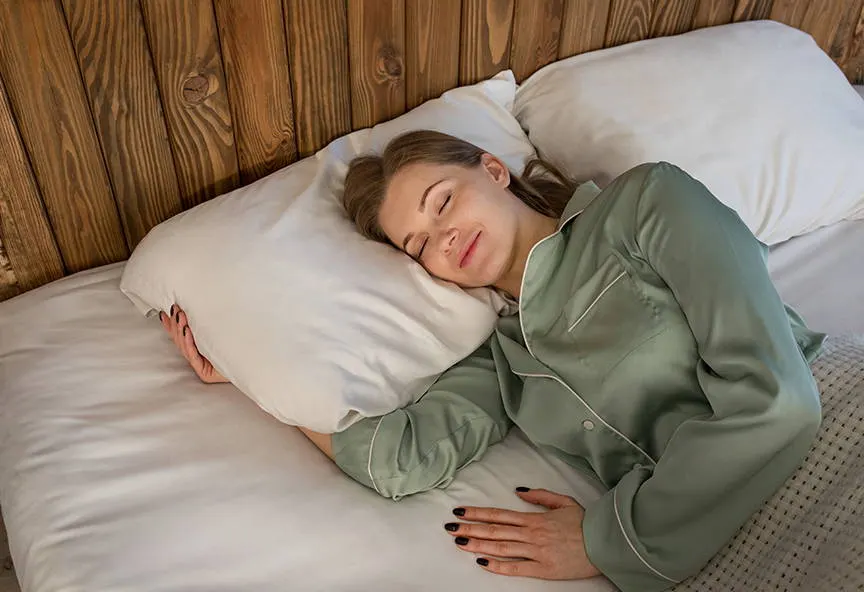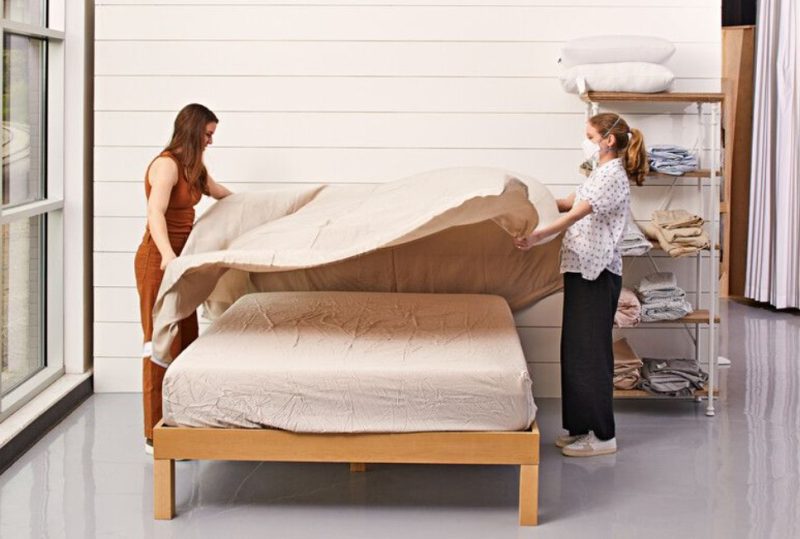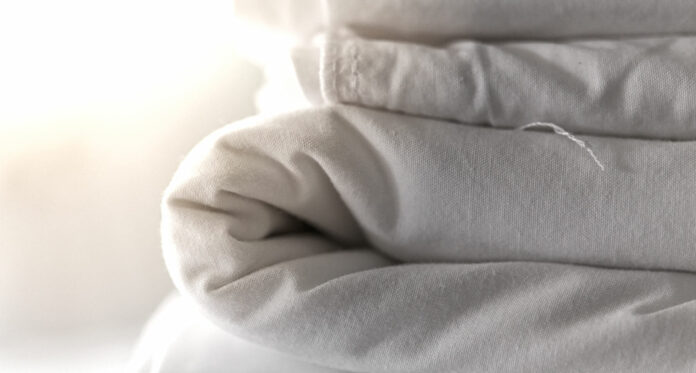Cotton is a great fiber to use for sheets, but there are some reasons why bamboo fiber sheets are better. First of all, cotton absorbs water and becomes heavy and uncomfortable to sleep on. Additionally, bamboo is a renewable resource that doesn’t require any herbicides or pesticides to be grown, which is great for the environment. If you’re looking for an environmentally friendly sheet material and want something that won’t smell bad when you sweat in it, choose bamboo!
Bamboo Fiber Sheets Compared to Cotton
While there are many potential benefits to using bamboo fiber sheets over cotton sheets, here are just a few reasons why bamboo is a better choice for bedding:
- Bamboo is naturally antibacterial and therefore less likely to cause allergy reactions.
- Bamboo does not contain any toxic chemicals which can be harmful to the environment.
- The fibers in bamboo are much softer than those in cotton, making it a much more comfortable option when sleeping on your back or stomach.
- Unlike cotton, bamboo is renewable and can be grown quickly in sufficient quantities to meet global needs.
- Bamboo sheets are naturally moisture-wicking, meaning they will help to keep you dry during nighttime sleep.
1. Bamboo is a Sustainable Material

Bamboo fiber sheets are much better for the environment than cotton sheets. Cotton takes a long time to grow and is a thirsty crop. Bamboo can be grown quickly and doesn’t require as much water as cotton. It also has a lower carbon footprint because it’s not a traditional crop that requires extensive farming. Finally, bamboo sheets are more comfortable because they’re cool to the touch and don’t create static electricity.
Bamboo sheets are also more affordable than cotton sheets. They’re typically about one-third the price of cotton sheets, and they last longer because they don’t wear out as quickly.
Bamboo fiber sheets are better than cotton sheets because:
– Bamboo is a sustainable resource, meaning it takes up less space than other crops and can be replanted.
– Bamboo grows quickly, so there is less waste and the fiber can be used multiple times.
– Bamboo fiber is strong, durable, and hypoallergenic.
2. Bamboo Fiber is Absorbent
Bamboo fiber sheets are absorbent and wrinkle-resistant, which makes them perfect for use in bedding, clothing, and other areas where you need extra absorbency. The fiber is also lightweight, making it a great choice for sheets and other fabric items that will be used frequently.
Bamboo is a sustainable resource, as it can be grown in areas that are not optimal for other crops. The fiber from bamboo is also environmentally friendly, as it does not produce greenhouse gas emissions when processed.
3. Bamboo is Antimicrobial

Bamboo fiber sheets are better than cotton sheets because they are anti-microbial. Bamboo sheets are made of bamboo fibers which are very antibacterial and antifungal. This means that your bed will stay cleaner and you will not get sick from the bacteria or fungi that can be found on cotton sheets.
Bamboo sheets are also naturally moisture-wicking, meaning that they will help draw moisture away from your skin and will help keep you cool during the hot summer months.
Bamboo fiber sheets are known to be anti-bacterial, as the bamboo plants use a natural process of growth that helps to prevent the spread of bacteria. Cotton, on the other hand, is known for its ability to absorb moisture and bacteria.
While bamboo fiber sheets are certainly a better option than cotton sheets, there are still a few factors to consider before making a decision. Ultimately, the best choice for bedding is based on your individual needs and preferences.
4. Bamboo is Recyclable
Bamboo fiber sheets are a better option than cotton sheets because they are recyclable. Cotton takes a long time to decompose, which means it can take up space in landfills for a long time. Bamboo, on the other hand, is able to decompose quickly and therefore doesn’t take up as much space.
Bamboo is a renewable resource because it can be replanted. Unlike trees, which take many years to grow back after being cut down, bamboo can be replanted relatively quickly. This means that bamboo sheets can be used multiple times without contributing to deforestation or climate change.
5. Bamboo is a Strong Material

Bamboo fiber sheets are made from the bamboo plant, which is a strong and renewable resource. Unlike cotton, bamboo doesn’t need a lot of water or pesticides to grow. It’s also a sustainable resource, because once the bamboo plants have been harvested, they can be replanted to create new fiber sheets.
Another benefit of bamboo fiber sheets is that they are naturally antibacterial and antifungal. This means that they’re great for people with allergies or sensitivities to other materials. Additionally, bamboo is a natural insulator, so it can help keep you warm in the winter and cool in the summer.
6. Bamboo Fiber Sheets are Environmentally Friendly

Bamboo fiber sheets are environmentally friendly because they are made from a renewable resource. The bamboo plant can grow up to 20 feet tall, but the fiber from its stalks can be used to make sheets, fabrics and other products. Bamboo fiber is also strong and lightweight, which makes it a good choice for fabric products that need to be resistant to wear and tear.
Conclusion
Bamboo fiber sheets are much better than cotton for a few reasons. First of all, bamboo is a renewable resource and it can take up to 50 times as many years to deplete a bamboo forest than it does to deplete an oak forest. This means that even if you use your bamboo sheets for 10 years, you’re still doing something good for the planet. Additionally, bamboo is super soft and has a high thread count which makes it great at wicking away moisture and keeping you cool in hot climates. And lastly, because bamboo is such an absorbent material, it can help reduce the amount of water that ends up leaking through your roof or flooring during heavy rains.




